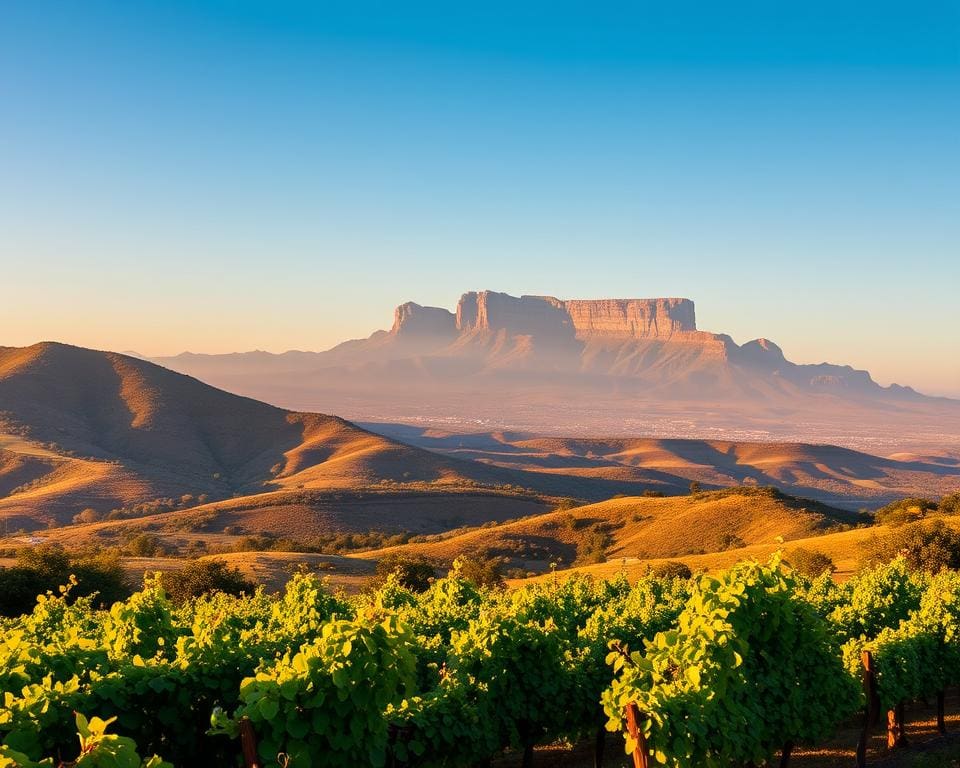Choosing the right time to visit South Africa can significantly enhance your experience in this breathtaking country. With its diverse landscapes and rich cultural tapestry, understanding when to travel to South Africa is essential for making the most of your visit. From thrilling wildlife safaris to stunning coastal retreats, the ideal season for a South Africa trip varies depending on your interests and activities.
South Africa’s unique geographical features create seasonal variabilities that can impact your holiday planning. Whether you are drawn to vibrant cultural festivals or the tranquillity of nature, knowing the best time to experience these wonders allows you to avoid less favourable weather conditions. Embrace the adventure and let the journey begin!
Understanding the Best Time to Visit South Africa
Choosing the best time to visit South Africa involves understanding its diverse seasons and the unique experiences each has to offer. With summer stretching from December to February, autumn from March to May, winter from June to August, and spring from September to November, there is always something captivating happening.
Seasonal Highlights and Events
Each season presents unique seasonal highlights that appeal to different types of travellers. Vibrant spring flowers bloom across Namaqualand, offering a spectacular display for nature enthusiasts. During summer, the migration of wildlife attracts many visitors to national parks, promising unforgettable safari experiences. Autumn brings milder temperatures and is an ideal time for wine lovers to explore the Cape Winelands, where harvesting season is in full swing. Winter might be cooler, but it features opportunities for whale watching along the coast and enjoying cosy fireside settings in luxury lodges.
Significant events such as the Cape Town International Jazz Festival and the renowned Durban July horse race draw crowds and offer a taste of local culture. Planning a trip around these events can enhance your experience and provide a deeper understanding of South Africa’s rich heritage.
Factors Influencing Travel Timing
Several factors influence travel timing, making it crucial to consider South Africa travel tips. School holidays often affect lodging availability and pricing during peak periods. Weather plays a critical role as well; activities such as hiking and shark cage diving depend on favourable conditions. Many travellers aim to experience local festivals, adding another layer to their itinerary planning. Understanding these elements helps ensure a rewarding visit and allows for the opportunity to discover the vibrant tapestry of South Africa.

When To Travel To South Africa
Understanding the South Africa weather guide is vital for planning your visit. The nation’s diverse climate impacts travel experiences significantly, making awareness of local weather patterns year-round essential. Regions vary dramatically in temperature and rainfall, creating unique opportunities at different times of the year.
Weather Patterns Throughout the Year
South Africa’s climate varies from coastal areas with mild temperatures to inland regions where heat can become intense. Summer months, spanning from December to February, frequently see temperatures above 30°C, particularly in the northern zones. The afternoons might bring refreshing thunderstorms that provide much-needed relief.
As winter approaches, particularly from June to August, temperatures drop. Evening chill becomes prevalent, especially in the interior. While some regions experience frost, the coastal areas maintain a more temperate climate. This seasonal shift presents a perfect time for unique outdoor adventures.
The summer is generally wetter, mainly in the eastern parts of the country. In contrast, the southwestern region enjoys a Mediterranean-like climate, characterised by dry summers and wet winters. These varying weather patterns present excellent opportunities for travellers interested in activities such as hiking, wildlife viewing, or relaxing on the picturesque beaches.
Exploring Peak Tourist Season in South Africa
The peak tourist season in South Africa attracts visitors from across the globe, offering a unique blend of experiences shaped by vibrant culture, stunning landscapes, and diverse wildlife. Understanding the characteristics of this time can help travellers make informed decisions about their journey.
Benefits and Drawbacks of Traveling During Peak Seasons
Travelling during the peak tourist season in South Africa comes with distinct advantages and challenges. On one hand, this period showcases a plethora of activities, festivals, and a vibrant social atmosphere. Numerous attractions, such as the Cape Town International Jazz Festival and the vibrant markets of Johannesburg, come to life, providing visitors with unforgettable experiences. The lively environments foster social interactions and cultural exchanges, making it an inspiring time to explore.
On the other hand, the influx of tourists leads to crowded spaces at major attractions. Iconic sites like Table Mountain and Kruger National Park often see long queues and packed viewing areas. Accommodation prices surge significantly, potentially putting a strain on travel budgets. Recognising these challenges is key for travellers preparing to navigate the peak season smoothly.
How Peak Season Impacts Accommodation and Attractions
The pressure on accommodation during the peak tourist season in South Africa can be intense. Popular hotels and lodges frequently book out months in advance, necessitating early reservations to secure the best options. As demand rises, prices skyrocket, making it imperative to plan ahead for a comfortable stay. Consider exploring alternative lodging, such as self-catering apartments or boutique inns, which may offer a more budget-friendly experience.
Attractions experience similar pressures. National parks and reserves become especially bustling, which may detract from the serenity of wildlife encounters. To enhance the experience, travellers can visit during off-peak hours or explore lesser-known sites that provide a glimpse into South Africa’s rich biodiversity without the crowds. This approach can unveil hidden gems, allowing for deeper engagement with the country’s natural beauty.
Recommended Months to Visit South Africa
South Africa’s diverse landscapes and vibrant culture make it a top destination year-round. Each month brings unique experiences, tailored to various interests, from wildlife adventures to cultural festivities. Understanding the recommended months to visit South Africa can significantly enhance the travel experience for visitors, providing opportunities to witness the best of what the country has to offer.
Top Reasons for Each Recommended Month
- January: Ideal for experiencing the Cape Town Minstrel Carnival, which showcases rich cultural traditions and lively parades.
- March: Perfect for whale watching along the Western Cape, where majestic southern right whales can be spotted as they migrate.
- June: A great month to visit Kruger National Park, as wildlife migration takes centre stage, offering memorable safari experiences.
- September: The Spring Flower Festival presents a breathtaking spectacle of wildflowers blooming across the landscape, attracting nature enthusiasts.
- December: Festive celebrations take place, making it an exciting time to explore unique South African holiday traditions and events.
Unique Experiences by Month
Each month in South Africa offers distinctive adventures and memorable moments that showcase the country’s incredible attractions. Travellers can engage in:
- Nature Viewing: The best times for game drives can be found in the winter months, particularly in May and June, when vegetation thins, making wildlife spotting easier.
- Cultural Fests: Participation in local festivals like the Cape Town International Jazz Festival in March provides an engaging cultural experience, featuring local and international artists.
- Adventure Sports: The summer months invite thrilling activities like bungee jumping from the Bloukrans Bridge, one of the world’s highest commercial bungee jumps.
South Africa Weather Guide for Travellers
For those embarking on their South African adventure, a thorough understanding of the climate plays a pivotal role in ensuring a memorable experience. This South Africa weather guide provides essential insights into the different weather patterns across the country throughout the year. Whether you’re planning a safari in Kruger National Park or exploring the vibrant streets of Cape Town, knowing what to expect from the weather can dramatically shape your travel planning.
When it comes to packing, various climate tips can help you prepare adequately for each region and season. Summers in South Africa can be hot and rainy, particularly from November to March, making light, breathable clothing ideal, along with a waterproof jacket for unexpected showers. Conversely, winter months, particularly June to August, can bring chilly evenings, especially in higher altitudes, so layering with warm garments is advisable to stay comfortable.
Being aware of natural phenomena, such as the likelihood of rain during the summer months or the crispness of winter nights, ensures you arrive fully equipped for your adventures. This comprehensive weather guidance isn’t merely about anticipating conditions; it is about optimising every moment of your journey. By aligning your itinerary with the local climate information outlined in this South Africa weather guide, you’ll enhance the joy and richness of your South African experience.









